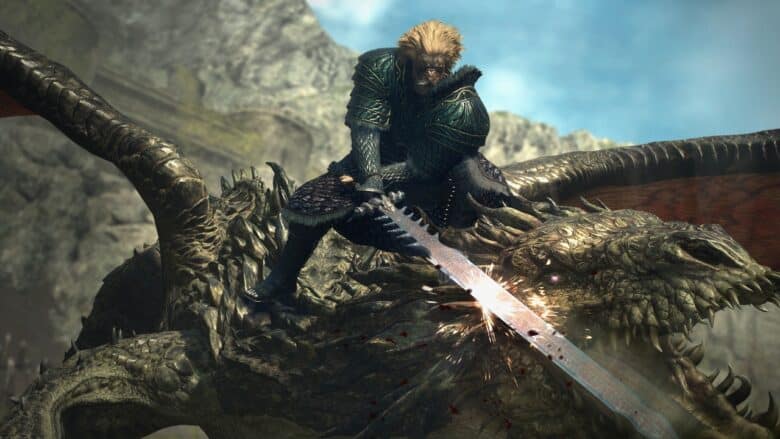
With Dragon’s Dogma 2, one of the most eagerly awaited games of 2024 awaits us in just a few days. As is typical of the genre, everything in the role-playing game begins with the creation of your own character. You will inevitably be faced with the question of which class or vocation you should choose. And what are the differences? Our Dragon’s Dogma 2 class guide explains.
The Dragon’s Dogma 2 Classes: How it works
No role-playing game works without classes. Okay… almost none at least. Of course, this also applies to the upcoming open-world RPG Dragon’s Dogma 2 from Capcom. There are a total of ten Dragon’s Dogma 2 classes to choose from in the game.
However, only the four basic classes or vocations, as they are called in the game, are available to you at the start of character creation. The six other specializations have to be unlocked in the course of the game.
This is linked to progress within the story, for example. For example, you must first find the appropriate master for a vocation in order to be able to use the advanced classes. But then you can freely choose between the vocations with your character at any time.
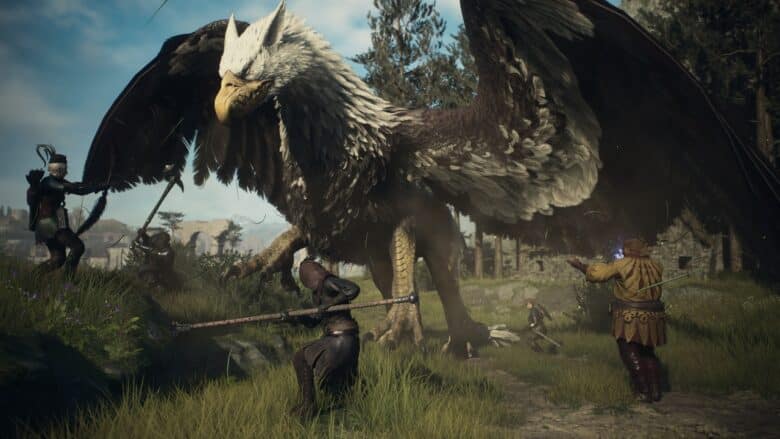
By the way: Most classes can also be learned by your minions, i.e. the CPU-controlled party members with whom you explore the world of Dragon’s Dogma 2. Only four of the ten classes are only available to players.
The Dragon’s Dogma 2 vocations at a glance
- Fighter
- Archer
- Thief
- Mage
- Warrior
- Sorcerer
- Magick Archer
- Mystic Spearhand
- Illusionist
- Warfarer
Basic classes in Dragon’s Dogma 2: These 4 professions are available
Let’s start with the four basic classes of Dragon’s Dogma 2, which you can choose from at the beginning of the game during character creation. All Dragon’s Dogma 2 classes have their own personal strengths and weaknesses and their abilities allow for a wide variety of play styles.
The basic classes include the fighter, the archer, the thief and the mage.
Fighter
The fighter is the most important melee class in Dragon’s Dogma 2. He goes into battle with a one-handed weapon and shield and is therefore able to block attacks. He relies on medium and heavy armor and can also use crowd control abilities – for example, directing enemy attacks towards himself.
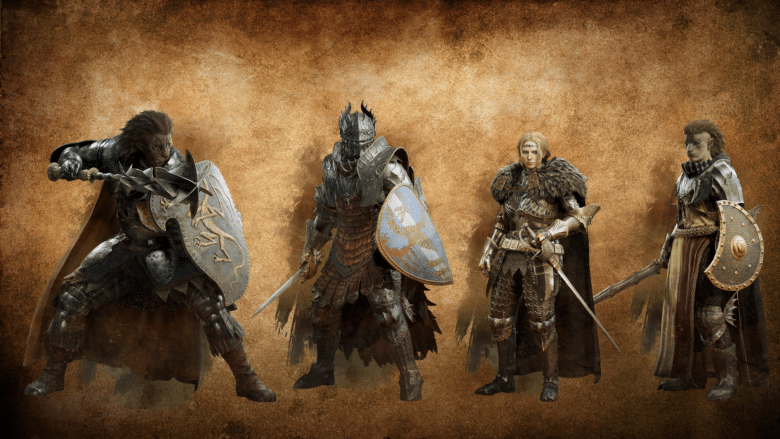
Fighters can be found on the front line and are not afraid to take a beating. This makes the class suitable for anyone who likes to be in the thick of the action.
Archer
The ranged counterpart to the fighter is, of course, the archer. Anyone who was particularly excited about the Elf Legolas in The Lord of the Rings films will get their money’s worth here.
The nimble archer uses his bow and arrow to deal powerful damage from a safe distance. At the same time, he uses special arrows and bow skills that explode or cause AoE damage.

Due to the lighter armor, you should always keep your distance from your opponents. To do this, this Dragon’s Dogma 2 class uses its mobility.
Thief
Thieves rely on light armor and swift melee attacks using two daggers, which cause massive damage in a very short time. With quick counterattacks and evasive maneuvers, you can quickly make up for the disadvantage in defense.
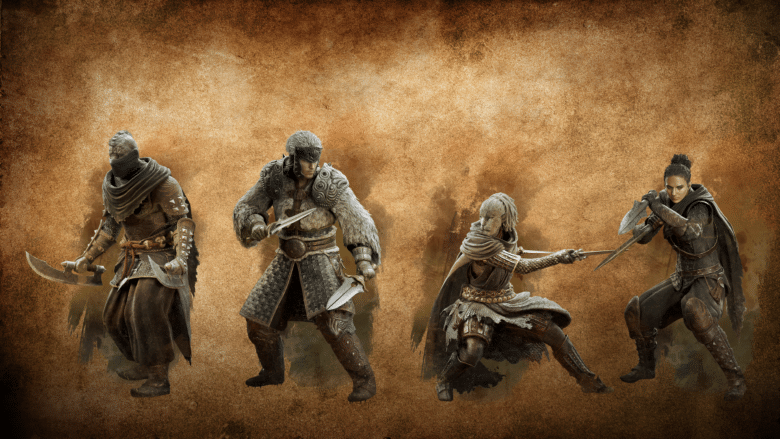
Additionally, thieves use tools such as explosive bombs for extra damage and can even steal items from NPCs and enemies.
Mage
Mages use a powerful two-handed staff to rain down spells on their opponents. Attack spells rely on different elements and cause more or less damage depending on the resistance of your opponents. It is important to note that more powerful spells have a longer incantation time and you are vulnerable when casting them.
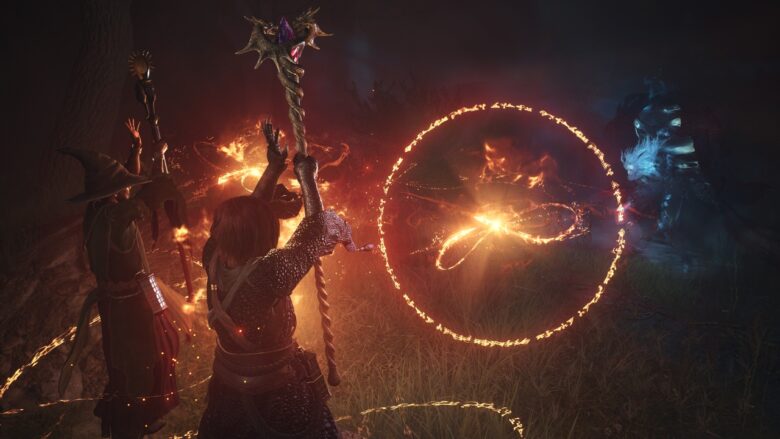
However, the mages don’t just know how to go on the offensive. They also support the party with support spells, provide powerful buffs and are even able to keep their comrades alive in intense battles with healing spells.
Dragon’s Dogma 2 classes: The advanced vocations
The advanced vocations add an extra degree of variety to the Dragon’s Dogma 2 classes. There are a total of six of these “Advanced Vocations” in the game. Some of them are enhanced versions of the basic classes, while others combine several classes or even come with their own unique play style.
The advanced vocations in Dragon’s Dogma 2 are: Warrior, Archmage, Magic Archer, Mystic Blade, Illusionist and War Master.
Warrior
The powerful warrior is an extension of the fighter. The difference is that he leaves the shield behind and instead goes into battle with brute two-handed weapons such as a greatsword or hammer. The ideal Berseker class for all those who want to hit hard.
Warriors have the strongest melee attacks in Dragon’s Dogma 2: no stone is left unturned where they strike. These attacks can also be charged up to cause even more damage.
Sorcerer
The Archmage is an extension of the Mage. Like the warrior, this extended vocation leaves defensive skills behind and concentrates entirely on powerful attack spells. So if you like to set an entire area on fire or conjure up tornadoes, this is the right profession for you.
Magic archer
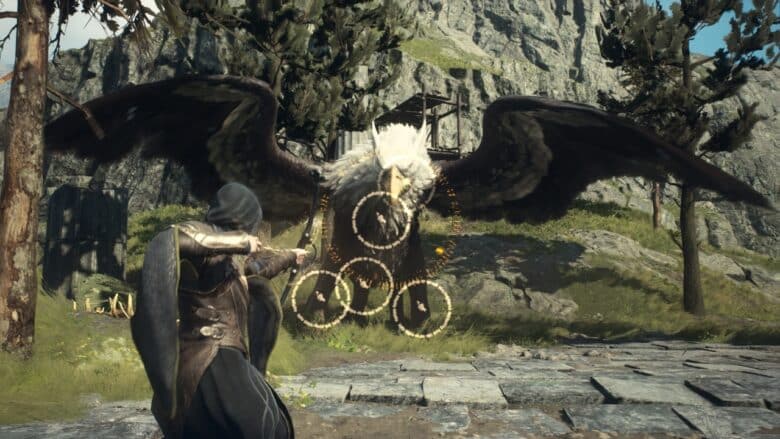
The magic archer enchants the arrows with elemental magic and thus strengthens the already brute ranged attacks. Target-seeking ice arrows, explosive ammunition and self-controllable arrows are also used, as well as magical ammunition that can revive fallen party members.
Mystic Spearhand
The Mystic Blade is the melee counterpart to the Magic Archer among the Dragon’s Dogma 2 classes. This vocation combines melee attacks with magic. This character uses a double-bladed spear, which can even hit several targets at the same time thanks to its high attack speed.
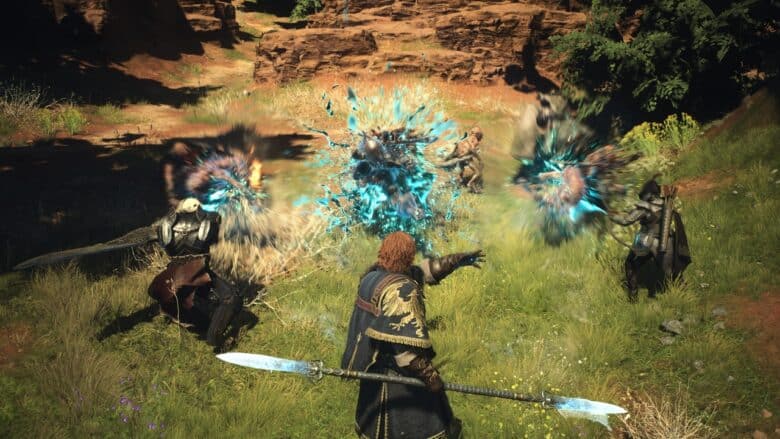
The agile Mystic Blade is also able to teleport and use telekinesis abilities to move and hurl objects at enemies.
Illusionist
The Illusionist is one of the two classes in Dragon’s Dogma 2 that offers a very individual gameplay experience that is unlike any other vocation. The illusionist goes into battle with a ceremonial censer and can conjure powerful illusions with the help of the smoke it contains.
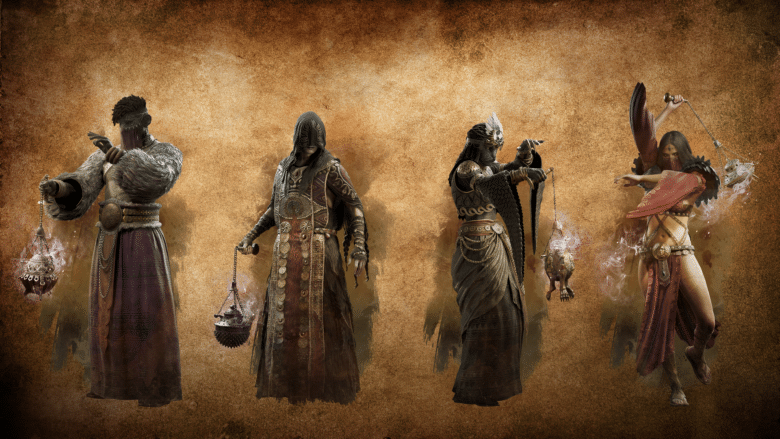
As a Supporter, the class is particularly adept at causing chaos among enemies. For example, by creating smoke clones that distract enemies or the ability to set your enemies on each other.
Illusionists also have support abilities that strengthen their own group in battle and thus provide them with advantages.
Warfarer
The War Master in Dragon’s Dogma 2 is the jack-of-all-trades among the classes in the open-world role-playing game. He can use every weapon in the game and every ability of other professions. Just not as good and strong as the respective vocation can.
This career is therefore primarily aimed at all those who like to experiment with the classes and talents and do not want to commit to one play style. If you like variety and even want to switch from sword to bow to magic while fighting, the War Master is the right choice.
Of course, this is only possible for you as a player. Just like the Magic Archer, Mystic Blade and Illusionist, the War Master can only be chosen by you and is therefore not available to your minions.
Dragon’s Dogma 2 classes: Conclusion
With a total of four basic classes and six additional vocations, Dragon’s Dogma 2 offers plenty of variety and caters to every conceivable playstyle. Especially as you can switch between different vocations later on.
When choosing your class, however, be sure to pay attention to the party composition, as each vocation has its own strengths and weaknesses. Setting off with a group of ranged fighters is just as unsuccessful as packing only mages or fighters – it’s the mix that counts.
Also interesting:
- The 10 best survival games in 2024
- The Finals Season 2: All the info on the new season of the free-to-play shooter
